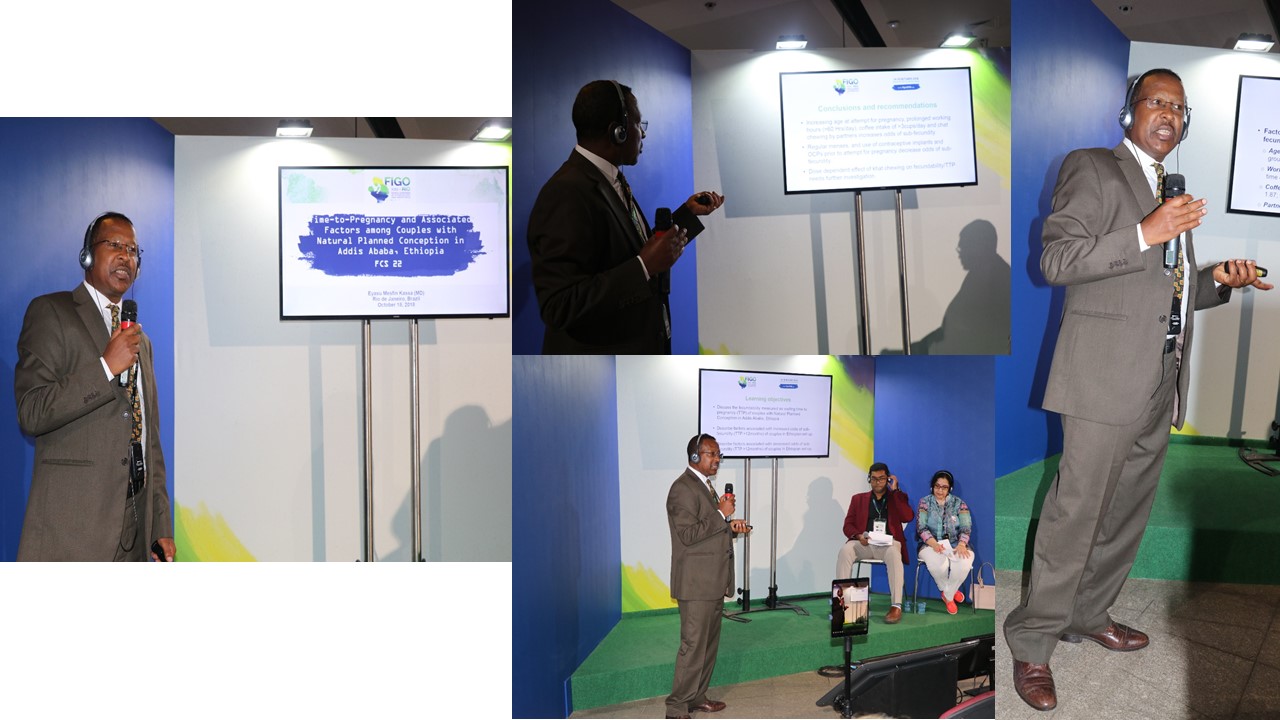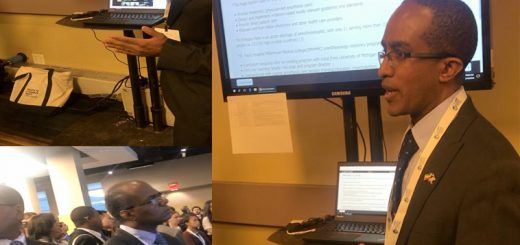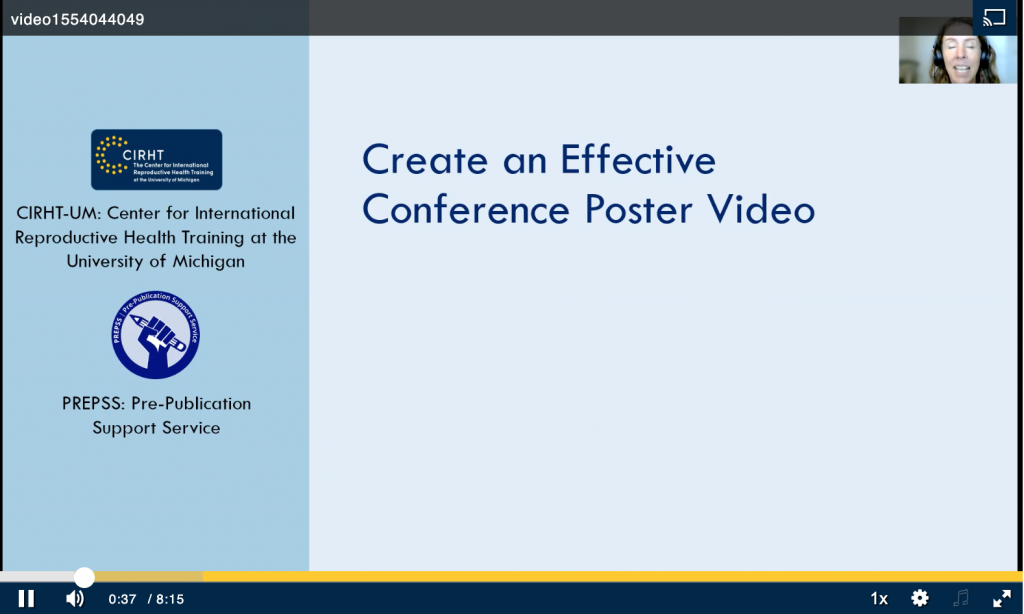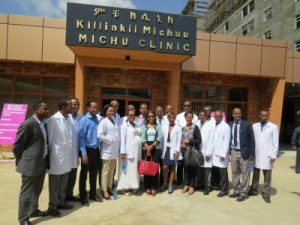Time-to-Pregnancy and Associated Factors among Couples with Natural Planned Conception in Ethiopia

DOI: 10.1002/ijgo.12582 FCS484
Eyasu Mesfin Kassa; Eskinder Kebede Weldetensaye
Addis Ababa University, Ethiopia, Addis Ababa, Ethiopia
Objectives: The fecund waiting time to pregnancy (TTP) is closely related to fecundability of a population. Several factors have been suggested to affect TTP of couples. Proper information given early in the course of trying to achieve pregnancy is likely to reduce time to conception for many couples, and reduce unnecessary intervention and cost. Published studies on TTP and its determinants, however, are very limited in African setting including Ethiopia. The purpose of the current study was to assess the fecundability measured as waiting time to pregnancy (TTP) and its determining factors in Ethiopian set-up.
Method: A retrospective cross-sectional study. Data collected from March–May, 2017 in 10 health facilities in Addis Ababa, Ethiopia. Pregnant women with natural and planned conception included. Data cleaned entered and analyzed using SPSS version 23. A step wise Chi-square test of independence, and bivariable and multiple logistic regression analysis were employed to test for association between the independent variables and the dependent variable (TTP). Odds ratio with 95% confidence intervals were computed to identify the presence and strength of association, and statistical significance was declared if p<0.05.
Results: A total of 1150 pregnant women participated. Mean age was 26.2 (±4.5). Mean and median TTPs were 6.4 (±9.4) and 3.0 months respectively. Pregnancy was achieved in ≤1 month, ≤12 months and after 24 months of attempt by 11.8% (136), 81.7% (938) and 6.7% (77) of participants, respectively. Age group of 25–29 years had highest TTP of ≤12 months (AOR 2.67; 95% CI 1.44–4.97). Employed with weekly working time of >60 h (AOR 1.87; 95% CI 1.02–3.42), who drink >3 cups of coffee/day (AOR 1.87; 95% CI 1.02–3.42), and whose partners chew chat (AOR 1.66; 95% CI 1.06–2.60) had higher odds of sub-fecundity (TTP of >12 months).
Conclusions: The study provided important baseline information on TTP for practitioners and researchers in reproductive health in Ethiopia and similar settings. Participants’ advancing age, working hours of >60 h/day, coffee intake of >3 cups/day and chat chewing by partners significantly increases the odds of sub-fecundity in couples. The findings may help clinicians to provide better guidance for couples on improving their chances of conception
and individualize the time to start investigation for subfertility/infertility.







